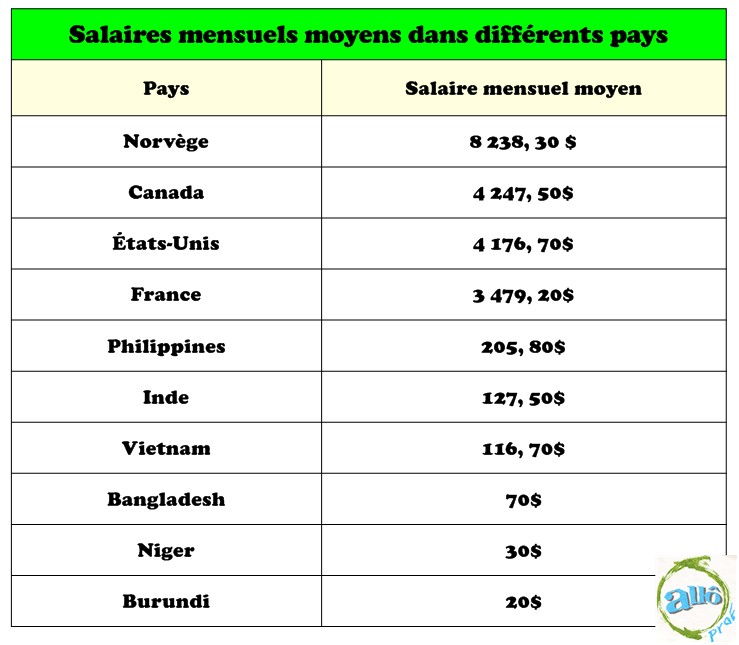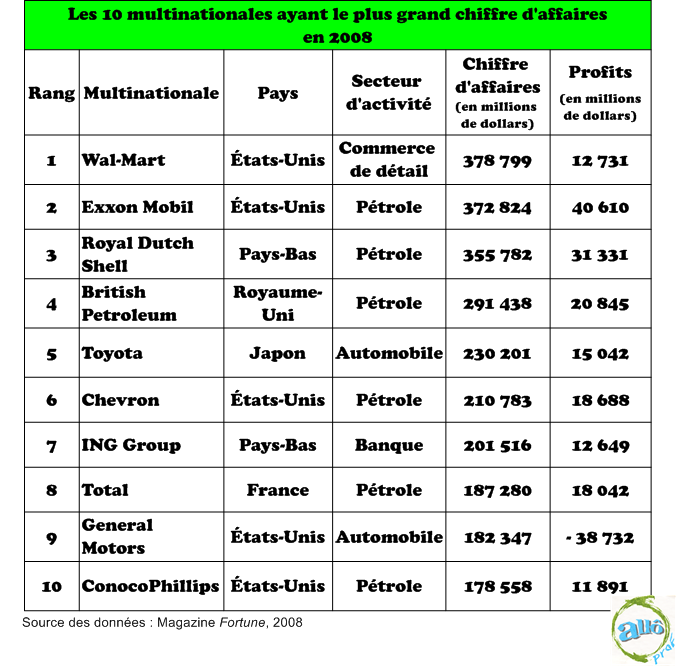The concepts covered in this fact sheet go beyond those seen in high school. It is intended as a supplement for those who are curious to learn more.
Globalization means economic globalization. Today, trade takes place on a planetary scale, i.e. between all countries. All resources can circulate freely. What we consume in Quebec today obviously doesn't just come from Canada or even America.
This new world-economy enables companies to source, process and sell their raw materials anywhere in the world. Country borders are much more permeable, less restrictive than before.
The main reason for this relocation is that companies want to be more competitive and benefit from lower production costs. They then take advantage of certain benefits offered by certain countries or regions of the world (absence of environmental standards, very low wages, qualified personnel, low-cost natural resources, advantageous geographical position, etc.).

Note : An image in English is coming soon.
An American company can source from South America, have processing plants in Asia and sell its products in Europe.
One of the negative aspects of globalization often raised is that it enriches the richest, while impoverishing the poorest. Rich-country companies exploit poorer countries and control trade. A multinational that owns factories abroad enriches the country where it originates, not the countries where its factories and workers are located.
Globalization also has cultural impacts. With the globalization of the economy and the development of communication technologies, a worldwide culture seems to be emerging. All over the world, people are wearing the same clothes, eating in the same restaurants, listening to the same films and the same music. One culture imposes itself and tends to dominate the others: American culture. This situation is causing concern throughout the world. According to UNESCO, over 3,000 languages are at risk of disappearing by the end of the 21sr century.
Several countries are taking steps to protect their culture.
In Quebec, the Charter of the French Language, or Bill 101, makes French the official language. Consequently, it must be used in all domains as a matter of priority. This measure is designed to protect the status of French in English-speaking North America.
The United States is a very powerful country, with great influence on the rest of the planet. English, for example, is the language most widely used in international trade and commerce. On the Internet, too, English largely dominates over other languages.
American culture, specifically that of the United States, is present just about everywhere in the world, conveyed in particular by cinema, music and the big American multinationals (Wal-Mart, McDonald's, Gap, etc.). Here are a few interesting facts about U.S. cultural domination:
- In 2005, over 70% of European cinema sales were generated by Hollywood films;
- In 2006, 21 of the 100 largest multinationals were American;
- In 2009, there were 32,158 McDonald's restaurants worldwide;
- Of the 5 top-selling singers worldwide, 4 are American.

The largest multinationals.
Note : An image in English is coming soon.